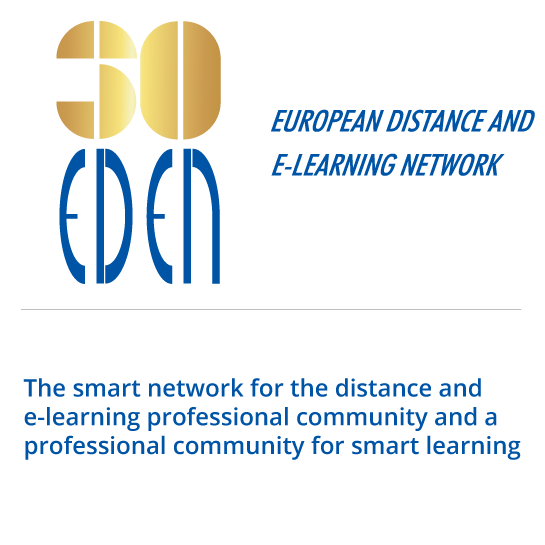WATCH THE RECORDING VIEW THE PRESENTATIONS
International Council for Open and Distance Education – ICDE is the leading global membership organisation for open, flexible and distance learning. ICDE is a not-for-profit, Non-Governmental Organisation registered in Norway with more than 250 members and partners impacting 15+ million students across six continents. The organisation is in a consultative partnership with UNESCO and shares UNESCO’s key value – the universal right to education for all. ICDE has been active on the open education global agenda for two decades. In the past years, ICDE has been very involved in the consultation of the UNESCO OER Recommendation and is currently strongly supporting its implementation as a member of the UNESCO OER Dynamic Coalition since its launch in March 2020. ICDE deeply believes in the potential of open education to achieve education for all. Open Education in general and OER in particular has been a continuous strategic priority and is again reflected so in the ICDE Strategic Plan for 2021-2024. In this workshop, participants will be introduced to ICDE’s recent and upcoming projects and initiatives within OER, and invited to interact with international experts on how to engage in these activities.
Moderator and speaker:
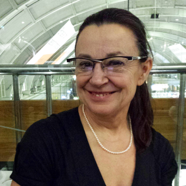 Ebba Ossiannilsson
Ebba Ossiannilsson
EDEN EC, EDEN SIG TEL QE, EDEN NAP, EDEN Council of Fellows, ICDE EC, ICDE OER Advocacy Committee, Chair, Swedish Association for Distance Education, Digital Job and Skills Coalition Sweden, Swedish Institute for Standards, ISO
Pr. Dr. Ebba Ossiannilsson, Sweden is a senior independent researcher, expert, advisor, consultant, quality reviewer, and influencer in the fields of open online flexible and distance learning. She is on the Executive Committee of the International Council for Open and Distance Education (ICDE) and the European Distance and E-learning Network (EDEN). She is also the Chair of the ICDE OER Advocacy Committee. She works with ISO, especially on quality, but also on Futures Concepts. At national level Ossiannilsson is the Vice President of the Swedish Association for Distance Education (SADE) and Board member at the Swedish Organization for E-Competence (REK). She has worked with OER in different areas and perspectives at national and international projects and levels. Since 2000, she has worked at Lund University Sweden. She is a frequent consultant and quality reviewer at several prestigious national universities. Ossiannilsson earned her PhD at Oulu University, Finland in 2012. Ossiannilsson has 200+ publications in peer-reviewed journals and books, as well as technical reports. She is a member in the Swedish Standard Institute (SIS) and the Job and Skills Coalition Sweden. She is in the Editorial Board for several Journals, and in addition, she is Guest Editor for several Special Issues for a variety of Journals.
Speakers:
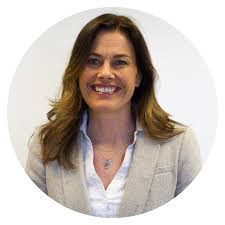 Torunn Gjelsvik
Torunn Gjelsvik
Torunn Gjelsvik, Norway Torunn Gjelsvik assumed the position as Secretary General for International Council for Open and Distance Education (ICDE) in January 2020. She has held several executive leadership positions in various educational institutions and organizations, including the national membership association Flexible Education Norway. From 2015 to 2018 she was Head of Development at the ICDE Secretariat, and her international experience covers policy development, international networks, global events and cross-country project management related to the global field of online, open and flexible education. She holds a Master’s Degree in Nordic languages and literature with a minor in French and History. She has additional studies in information and communication, strategy and project management from BI Norwegian Business School. She is a member of the Orientation Board of CNED (The National Centre for Distance Education in France).
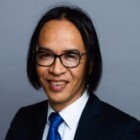 Jacques Dang
Jacques Dang
Jacques Dang, France, Technology Director at HEC Paris. He leads collaborative initiatives in technological R&D, in cooperation with French universities, high-tech companies from the Systematic Paris Region cluster and academic partners from Europe and French-speaking Africa. These projects involve next-generation networks, distance learning as well as evaluation and learning analytics. He is the coordinator for the PERICLES project, an e-education project from the national Investments for the Future program (Programme des Investissements d’Avenir). He is a member of the French delegation to ISO/IEC JTC1 SC36, Secretary of the Board for AUNEGE, the French OER repository for Management & Economics, secretary of the Board for L’Université Numérique, the federation of French OER repositories, and a member of the board for International Council on Badges and Credentials (ICoBC).
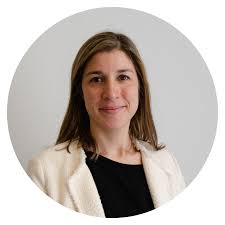 Anaïs Røed Malbrand
Anaïs Røed Malbrand
Anaïs Røed Malbrand, Norway, is Senior Advisor at the International Council for Open and Distance Education – ICDE. She is the key contact at the ICDE Secretariat for the ICDE Francophone OER working group, ENCORE+ project and the OER Advocacy Committee. She has previously held positions in New York and Santiago de Chile at the United Nations Development Programme (UNDP), in Madrid at UNHabitat, the United Nations High Commissioner for Refugees (UNHCR) and the Organization of IberoAmerican States for Education, Science and Culture (OEI) and at Oxfam in Spain and Guatemala. She holds a Master’s Degree in Business Administration from NEOMA Business School in France and a Master’s Degree in International Cooperation from the Basque Country University in Spain.
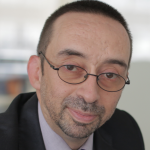 Daniel Burgos
Daniel Burgos
Prof. Dr. Daniel Burgos works as a Full Professor of Technologies for Education & Communication and Vice-rector for International Research (UNIR Research, http://research.unir.net), at Universidad Internacional de La Rioja (UNIR, http://www.unir.net). In addition, he holds the UNESCO Chair on eLearning and the ICDE Chair in Open Educational Resources. He also works as Director of the Research Institute for Innovation & Technology in Education (UNIR iTED, http://ited.unir.net). His interests are mainly focused on Educational Technology & Innovation: Adaptive/Personalised and Informal eLearning, Open Science & Education, Learning Analytics, Social Networks, eGames, and eLearning Specifications. He has 200+ publications (scientific papers, European patents, books or special issues on indexed journals). He is or has been involved in 55+ European and Worldwide R&D projects, including the European Network for Catalysing Open Resources in Education (ENCORE+). He is a Professor in a serie of universities around the world (Palestine, Colombia, South-Africa, United Kingdom, Ecuador). He has been chair (2016, 2018) and vice-chair (2015, 2017) of the international jury for the UNESCO King Hamad Bin Isa Al Khalifa Prize for the Use of ICTs in Education. He is a consultant for the United Nations Economic Commission for Europe (UNECE), European Commission, European Parliament, Russian Academy of Science and ministries of Education in over a dozen countries. He is an IEEE Senior Member. He holds degrees in Communication (PhD), Computer Science (Dr. Ing), Education (PhD), Anthropolog (PhD), Business Administration (DBA) and Artificial Intelligence (MIT, postgraduate).
 Davor Orlic
Davor Orlic
Davor Orlic is an MA graduate in Digital Humanities from University College London. He co-founded VideoLectures.Net with 20.000 educational videos, created OpeningupSlovenia national education case study, established the UNESCO Chair on Open Technologies for OER and Open Learning, curated the 2nd UNESCO OER World Congress in 2017 and conceptualised the Internet of Education paradigm. He is the Chief Operating Officer at the International Artificial Intelligence Research Centre (IRCAI) and Knowledge 4 All Foundation with 60 global members in machine learning. He is active in Artificial Intelligence research, open education, policies and business innovation in education. He has managed a portfolio of European and African research projects on AI from capacity building of communities, to applicative solutions and policy with 40+ partners and 150+ researchers across the board. He is currently working on two European Networks of Artificial Intelligence (HumaneAI, ELISE), one Network in Sub-Saharan Africa (AI4D) and in the European Network for Catalysing Open Resources in Education (ENCORE+).

